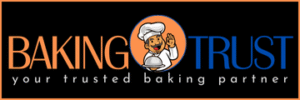
There are numerous benefits to running a baking business for anyone who aspires to be a chef or a cake lover. Suppose you are a professional baker or a home baker looking to start a new business or secure additional clients. In that case, several key factors must be considered when setting up a baking business to ensure long-term success. This comprehensive, all-in-one guide will help you learn everything you need to know about starting a new baking business under the best possible business model. By the end of this guide, you’ll know exactly how to start a baking business for long-term success.
Why Should You Start a Baking Business?
This is an Essential Niche
This is a unique and essential niche because food is one of our basic human needs. Every person requires food to survive, and as long as the world exists, the demand for food will never disappear. That’s why the food industry remains one of the most attractive and sustainable businesses worldwide. The baking business stands out among the many sectors within the food industry, encompassing everyday favorites such as bread, pizza, burgers, and more. Baked goods are a part of our daily lives from morning to night. The baking business is one of the most promising opportunities available. It not only offers strong market demand but also has the potential to provide stable employment for many people.
Turn Your Passion Into Profit
Opening a bakery allows you to turn your passion for creating delectable pastries and desserts into a thriving business. If you like to make custom cakes, bake fresh bread, or make crispy pastries, there is an increasing demand for homemade, premium baked goods. It’s a business you can run from your kitchen, and it requires much less in startup costs than you would have to invest if you were opening a restaurant or a food manufacturing business. And who doesn’t love to bake and bake products are happy products.”) Additionally, baking is a joyful experience for many people — not only do you earn money, but you also get to be part of your customers’ celebrations and special events.
How to Start a Baking Business: Plan and Market Research
The success of your baking business is directly linked to your preparations and understanding of the market. To be successful, you need to figure out what kind of baking business you want to operate, who you are selling to, and what makes you unique. Now, let’s take a closer look at those essential planning steps.
Define Your Niche
Before getting to work, you will need to identify your niche. Do you want to focus on wedding cakes, cupcakes, or custom cookies? Or would you rather open a general bakery offering a range of baked goods, such as bread, pastries, and cakes? Establishing a niche will help you concentrate your business and marketing efforts effectively.
- Wedding Cakes: Bespoke cakes for weddings, engagements, and other special events.
- Cupcakes and Cookies: Bake for a pick-me-up or special celebration.
- Bread and Pastries: Artisan breads, croissants, and pastries bakery.
Knowing what you want to bake is, first and foremost, essential to make yourself a distinctive baker in a crowded market.
Conduct Market Research
Once you’ve chosen your niche, research the market to see if there’s a demand for your product. Identify some key foodservice baking industry trends and observe your competitors. You should be addressing important issues, including:
- Who is your target audience? (Age, income, location)
- What’s new in baking? (Vegan, gluten-free, organic)
- Who are your competitors, and how do you differentiate yourself?
You can use this information to determine if there is a market for your baking business and to identify the types of products that sell well in high quantities.
How to Start a Baking Business: Set Up Your Bakery
Now that you’ve found your niche and studied other bakeries, it’s time to open your bakery. When setting up your new vape and gear, there’s finding a place, getting the necessary items, and planning for the big reveal.
Choose the Right Location
Some stores will encourage foot traffic, while others won’t; therefore, choosing a location wisely is a crucial factor in deciding where to open your bakery. If you plan to have a storefront, consider an area with high foot traffic, particularly from schools, offices, and residential buildings. A well-sited bakery can attract passersby or those seeking a quick treat.
If you are looking to start an online bakery or have a home-based business, ensure that you can provide both reliable service and products, regardless of where your operation is based. Serve your audience. If you have a broad or out-of-town target market, consider providing delivery.
Obtain the Equipment
To make treats and sell them to the public, you’ll need some essential tools of the trade. That means everything, from ovens to mixing bowls to packaging materials. Here’s what you need to know to start a baking business: What You’ll Need to Start A Baking Business. Here’s a list of baking tools and resources you need to get started.
- Ovens: opts for professional-level ovens that can accommodate large amounts of baked goods.
- Mixing Appliances: Mixers and hand mixers of every design.
- Cool storage: Fridge trucks for perishable ingredients, cakes , and pastries.
- Packaging: Items , such as boxes, bags, and wraps, are branded in line with your brand.
- Display Cases: If you have a storefront, you’ll need display cases to effectively showcase your products.
Ensure that you comply with all local health and safety codes applicable to your kitchen and obtain any necessary inspections or permits as required by law.
How to Start a Baking Business: Licensing and Legal Requirements.
If you dream of a quick-bread empire or want to sell your cupcake recipe like hotcakes, start by getting your legal affairs in order.
Regulations are essential to opening any business, particularly when food is involved. From registering your business to obtaining the required licenses and permits, it’s vital to ensure that you meet all the necessary regulations.
Register Your Business
You will need to first register your bakery business with the proper local and state authorities. This usually consists of: Picking out a business name and what type of business structure to use (LLC, sole proprietor, etc.) Applying for a federal Employer Identification Number (EIN). Some states require sales tax to be collected and remitted to the state. Hopefully, you live in one of the states with a food exemption!
Get Food Safety Certified
If you want to open an actual bakery or sell food to the public, you’ll need to follow local laws regarding food safety. This may involve attending food safety classes and passing inspections to ensure compliance with food safety regulations. Some of the certifications you might need are:
- Food Handler Permit: Anyone involved in food preparation and service must have this permit.
- Health Department Permit: Your bakery is required to comply with health and safety guidelines.
A standard business license for a legitimate operation. Be sure to research and follow local health department regulations to ensure your bakery operates smoothly and without any legal issues.
How to Begin a Baking Business: Budgeting and Financial Planning
Any business must have a solid financial plan in place before it can be started. You’ll need to budget to cover startup costs, operating expenses, and growth. Let’s break down the numbers involved in opening a bakery.
Calculate Startup Costs
Starting a baking business incurs several costly startup expenses, including equipment, ingredients, rent (if you don’t already have your own space), and marketing. An outline of just a few of the first costs might be:
- Equipment: Ovens, mixers, refrigerators, display cases, etc.
- Basic ingredients: biscuit mix, sugar, butter, and other baking ingredients.
- Licensing and Permits: Money paid for business registration, food-handling credentials, and health inspections.
- Marketing: Site development, social media advertising, and printed promotional materials.
Your startup costs might be anywhere from a few thousand dollars for a home-based business to tens of thousands of dollars for a full-scale bakery.
Set Pricing
The next step is to set the prices for your goods. Your Pricing should be based on the quality of your ingredients, as well as the work that goes into making your bread and pastries. You also need to consider your overhead expenses, such as rent, utilities, and employees’ salaries, if you decide to hire staff. You can also conduct comparison shopping for similar products in your area, ensuring that your Pricing is competitive. And don’t forget to add a margin for your business.
How to Start a Baking Business: Marketing and Branding
The importance of marketing to the success of your bakery cannot be overstated. You’ve got to make a commotion, get customers in the door, and send them back to order more. So, what are the best ways to market a bakery?
Build A Clear Brand Identity for Your Niche
A strong brand is essential for any business, and yours is no exception. Your brand is what sets you apart from the competition and fosters trust with your audience. When building your brand, keep in mind:
- Logo: A simple, identifiable logo that represents the spirit of your business.
- Brand Colors and Theme: Choose colors and design elements that align with the personality of your bakery and resonate with your target clientele.
- Tagline: If you want more than just the name, create a tagline for your bakery that describes its mission or conveys any other information you’d like to share.
Build an Online Portfolio
In today’s digital era, it is essential to have an online presence. The online has everything any average customer is looking for today. A solid online presence will help your bakery attract and retain customers.
- Website: Create a basic, mobile-friendly website that allows users to view your menu, learn about your products, and place orders (if applicable).
- Social Media: Utilize social media platforms like Instagram, Facebook, and Pinterest to showcase your high-quality products through visually appealing images. Engage with your followers by posting regularly and responding to their comments.
- Email marketing: Gather your customers’ email addresses and send them news, special offers, and updates on new products or services.
Provide Discounts and Promotions
To attract your first customers, consider offering special discounts and promotions, such as “buy one, get one free” or a discount on their first purchase. You can also add temporary specials or seasonal promotions to keep customers coming back for more.
How to Grow a Baking Business?
Once you’ve established your bakery, you can take your business to the next level. That might mean expanding your product line, opening new locations, or going online.
Expand Your Product Line
As your business expands, expands, you can try new products and flavors to appeal to different customer demographics. You may also offer vegan or gluten-free products or develop seasonal items for holidays or special occasions.
Open Additional Locations
If your bakery becomes popular, consider opening additional locations or expanding your business into a franchise. Expanding will require a lot of forethought, so ensure you have the necessary resources and infrastructure to accommodate it.
Conclusion: How to Start a Baking Business
Opening a bakery is a fun startup that can have long-term potential if done right. With proper planning, licensing, equipment, marketing, and a solid financial strategy, you can transform your passion for baking into a thriving business. Continue to devote as much attention as possible to offering a high-quality product, superior customer service, and a highly recognizable brand so your bakery can establish a firm foothold in the market and outperform the competition.
You want to open your own baking business and want to ensure you’re on the right track. With help from this guide, you’ll be able to start and grow your very own baking business with the proper steps laid out for you. Best of luck!


